Table of Contents
Are you a rose enthusiast who wants to have a garden filled with roses? If yes, then you also have to remember and be aware of common diseases like Rose Black Spot (Diplocarpon rosae) that can destroy the splendor of your rose blooms. This fungal disease is not only a problem to the affected rose plants but can also spread to nearby roses, creating havoc on your garden’s overall health and appeal.
In this blog, we will get into the intricacies of Rose Black Spot, where we will explore the ways in which the black spots pass from one plant to another so that you are aware of possible infestation and can make the right decision. So, can rose black spots transfer to other plants? Yes.
Below are the ways in which it can spread from one plant to another, and of course, some homemade remedies for black spots on roses will always work.
How Rose Black Spot Transfers from One Plant to Another
1. Transfer Through Air
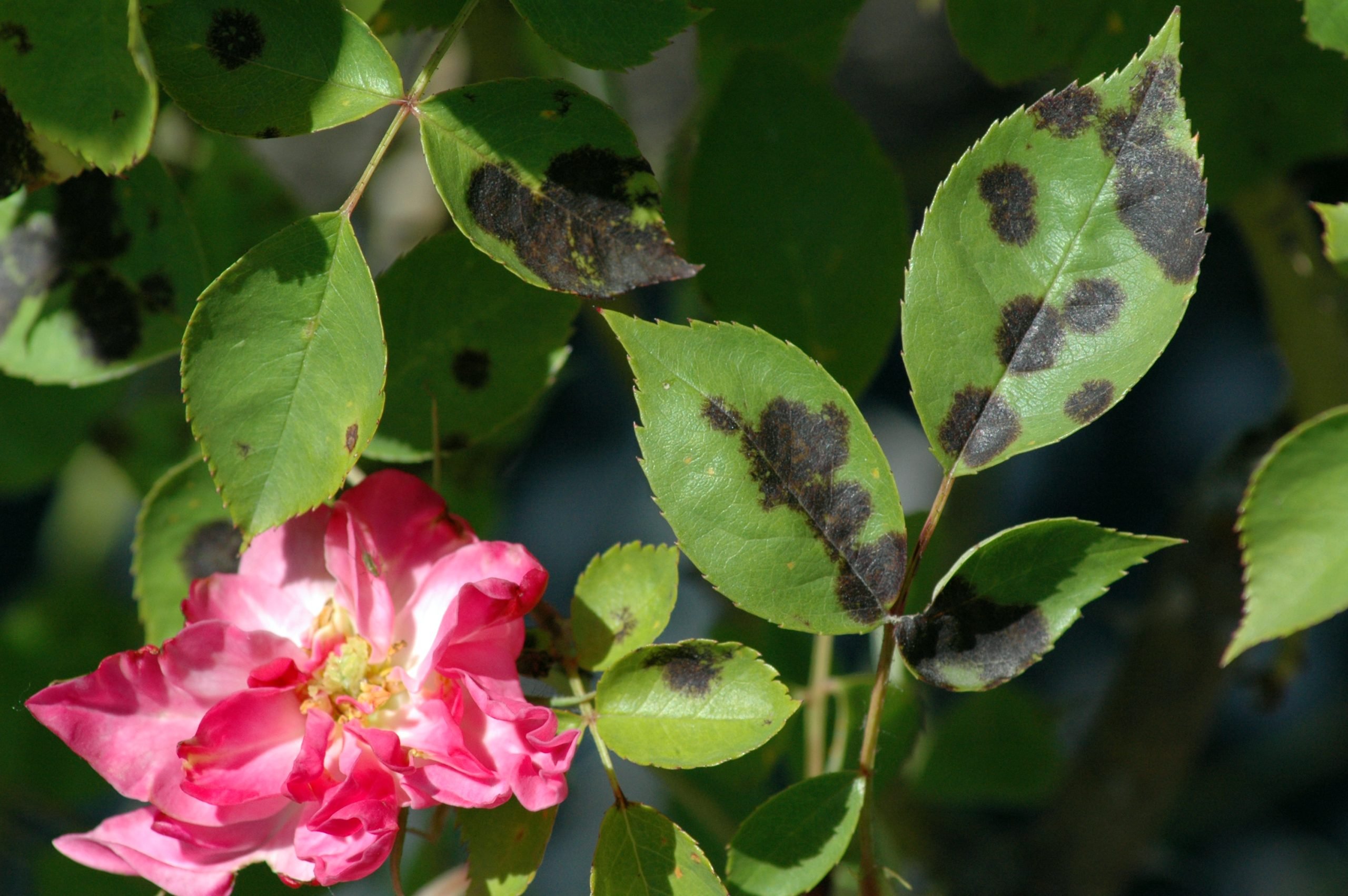
One of the ways in which the fungus from the rose plant can transfer is through air. Rose Black Spot produces tiny spores that are capable of becoming airborne. When the wind blows, these spores can travel significant distances, settling on nearby rose plants. Once they land on the new plant, they can initiate new infections by infiltrating the susceptible leaves, thereby spreading the disease. So, make sure that you dispose of the infested rose plant away from the garden and look out for any kind of airborne transfer.
2. Rain
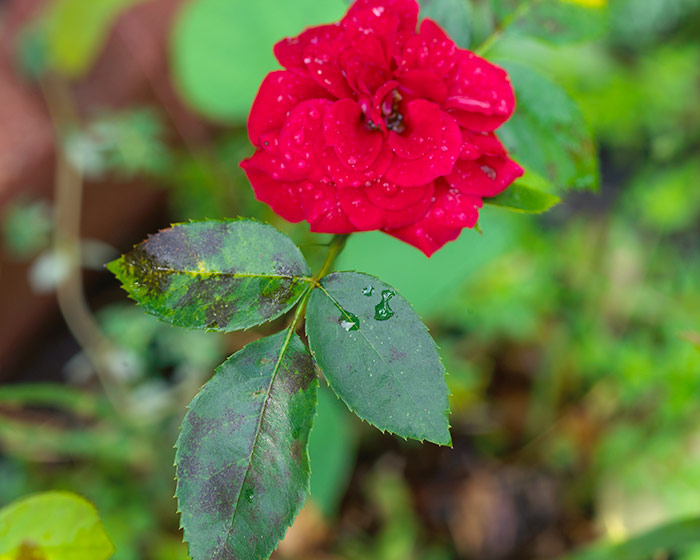
Raindrops, especially during heavy fall, can be powerful agents for spreading Rose Black Spot. When rain hits the rose leaves that are infected, it dislodges spores from their surfaces and forcefully splashes them onto neighboring plants. This can easily lead to new infections if the spores land on healthy, susceptible leaves.
3. Irrigation Water
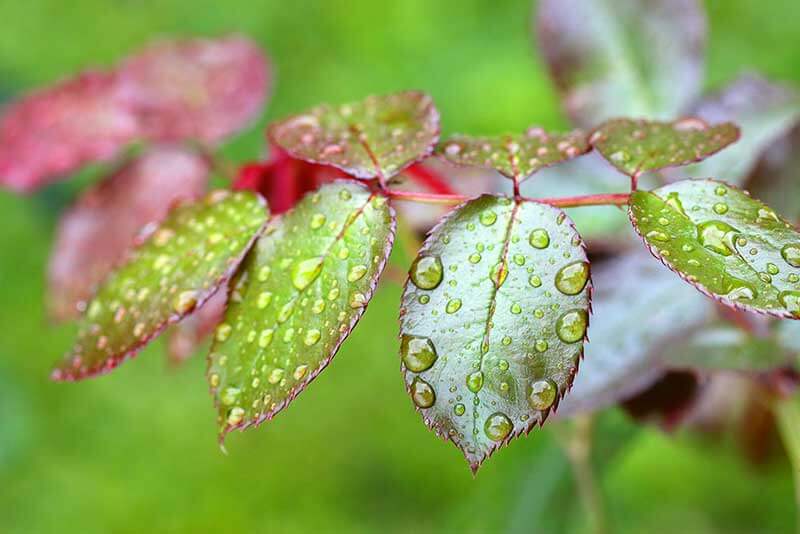
Overhead irrigation, where water is sprayed onto rose plants from above, can also spread the disease. The water can wash spores from infected leaves and carry them to nearby plants, increasing the risk of infection. To avoid this, check the plant before watering them so that you do not spread the disease.
4. Contaminated Garden Tools
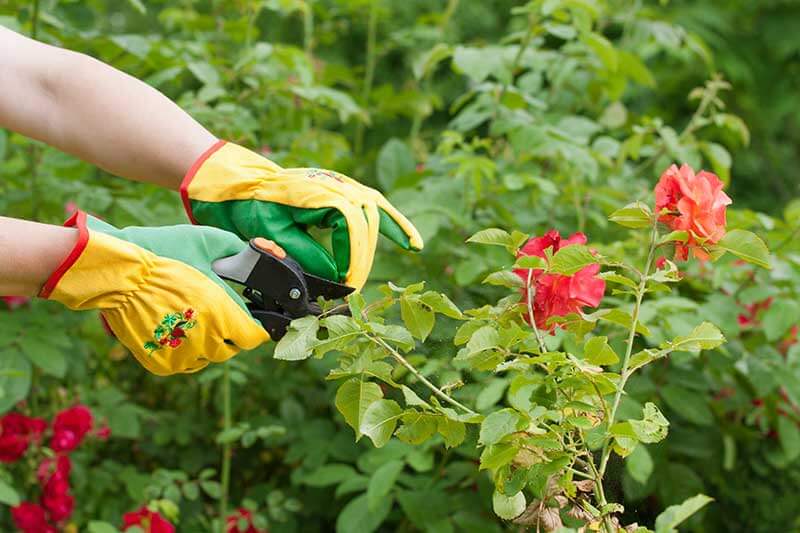
When you are using tools to keep your garden thriving, make sure that you are cleaning the tools properly. Gardeners are unwitting carriers of Rose Black Spot when they use contaminated tools in the garden. If tools like pruning shears, scissors, or gloves have been in contact with infected roses and are subsequently used on healthy plants without proper cleaning, the fungus can spread. You can avoid that by cleaning the tools after each process.
5. Contaminated Through Humans
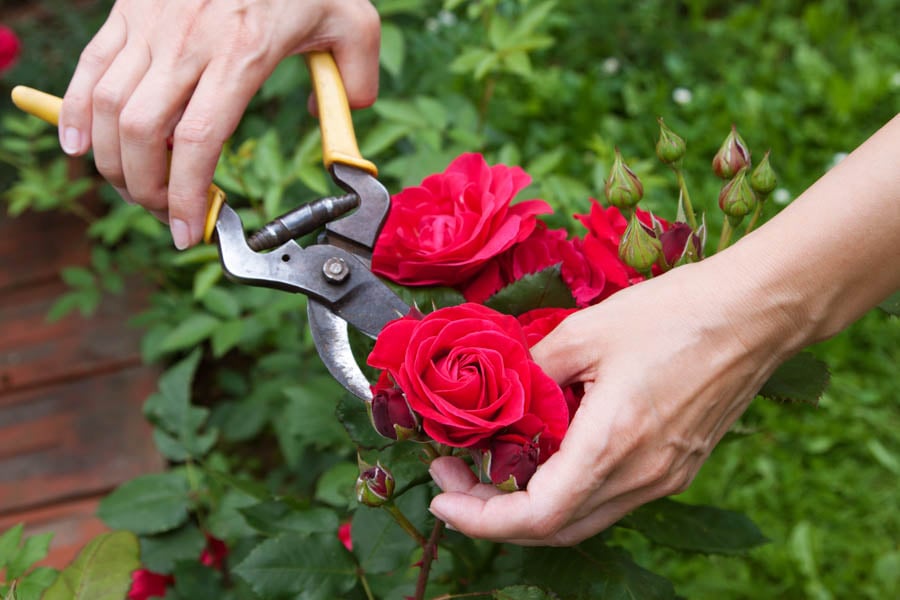
When you are looking around your garden and have touched multiple roses, you can unknowingly transfer spores through their hands and clothing. When you handle infected rose plants and then touch healthy ones, you can introduce the fungus to previously uninfected plants. So, make sure you are not touching the infected plants.
6. Insects
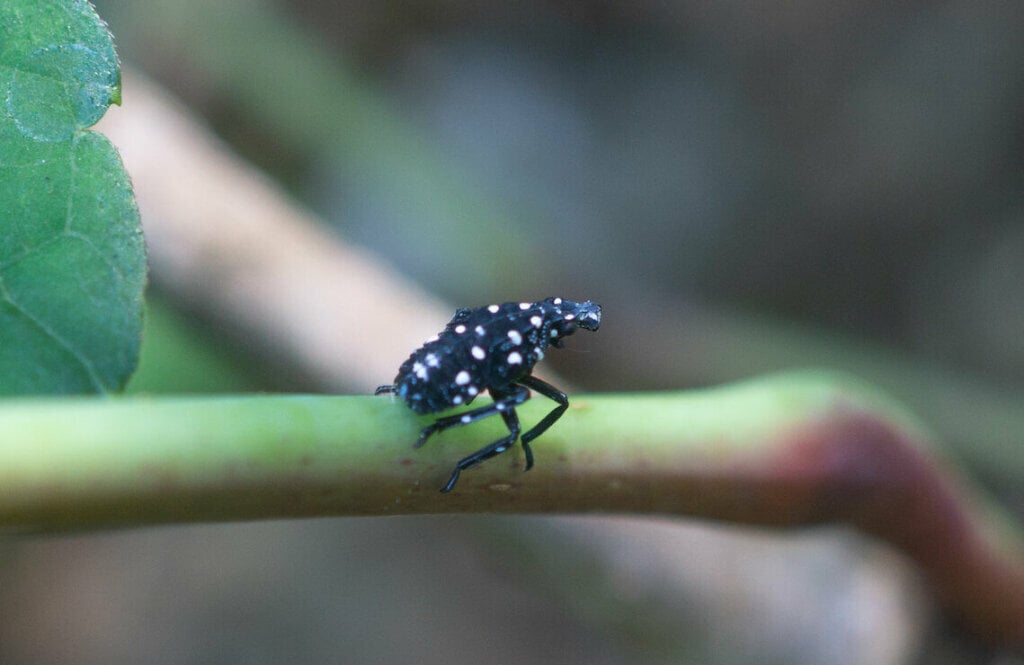
Insects like aphids and leafhoppers can inadvertently help in the spreading of Rose Black Spot. As they move between plants, they may pick up spores from infected roses on their bodies and carry them to other plants during feeding or movement.
7. Animals and Wildlife
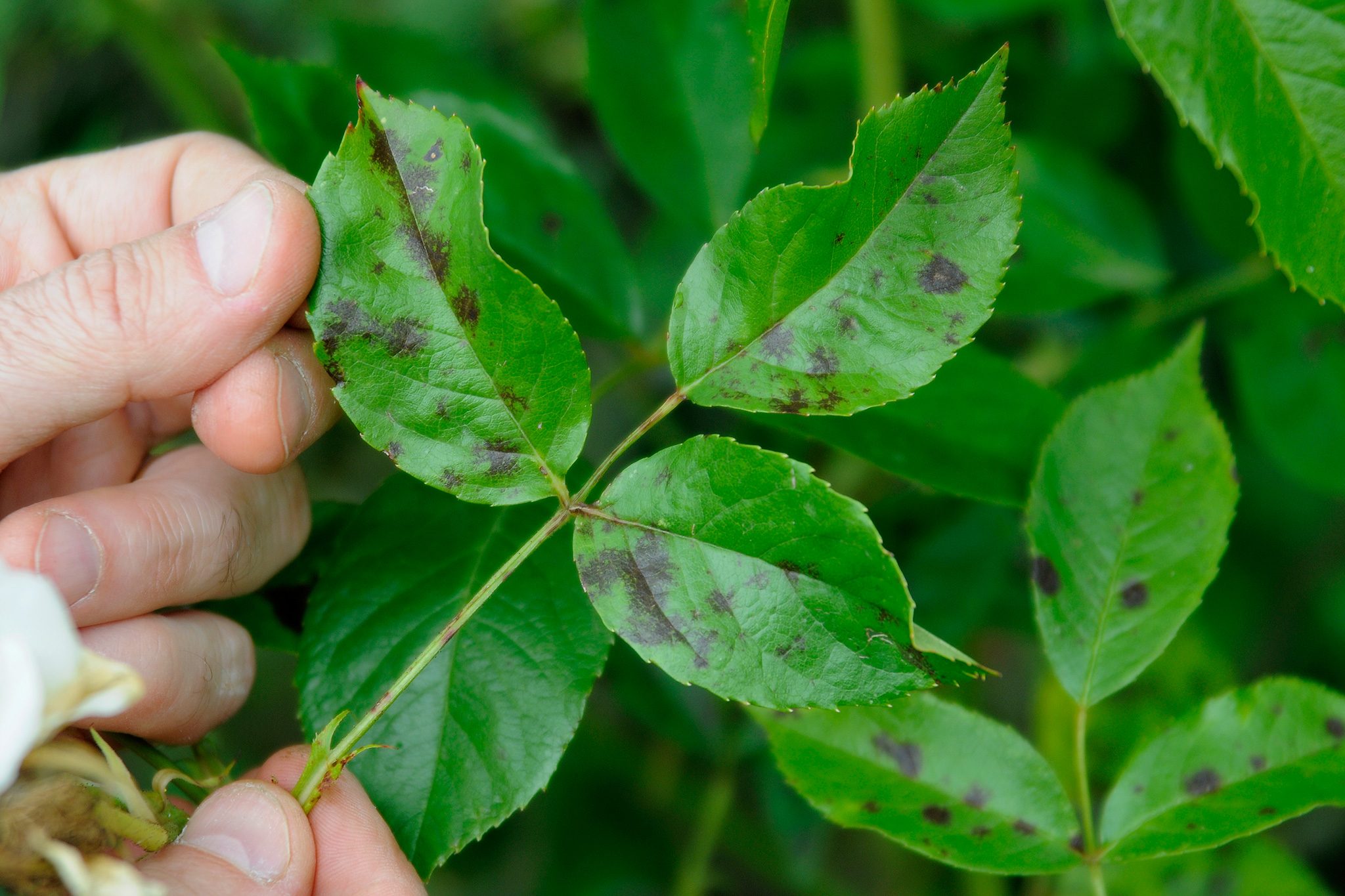
Wildlife, such as birds and rodents, can carry spores on their fur or feathers after coming into contact with infected rose leaves. When they go around the garden and visit other plants, they can potentially transfer spores to nearby plants. One of the ways to avoid this is by quickly treating the infected plant so that animals do not get a chance to spread the disease.
8. Contaminated in The Mulch
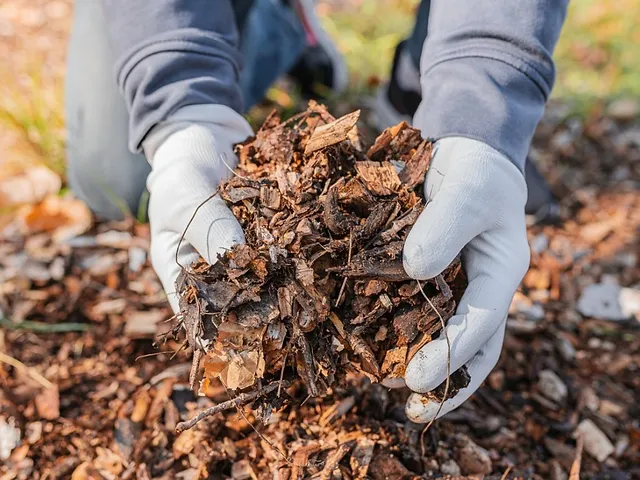
Do not even think about reusing the infested rose leaves and branches as mulch for your garden. Using infected rose leaves and debris as mulch can introduce spores into the soil. Once in the soil, these spores can infect the root systems of nearby rose plants, perpetuating the disease cycle.
9. Gardening Gloves and Equipment Storage
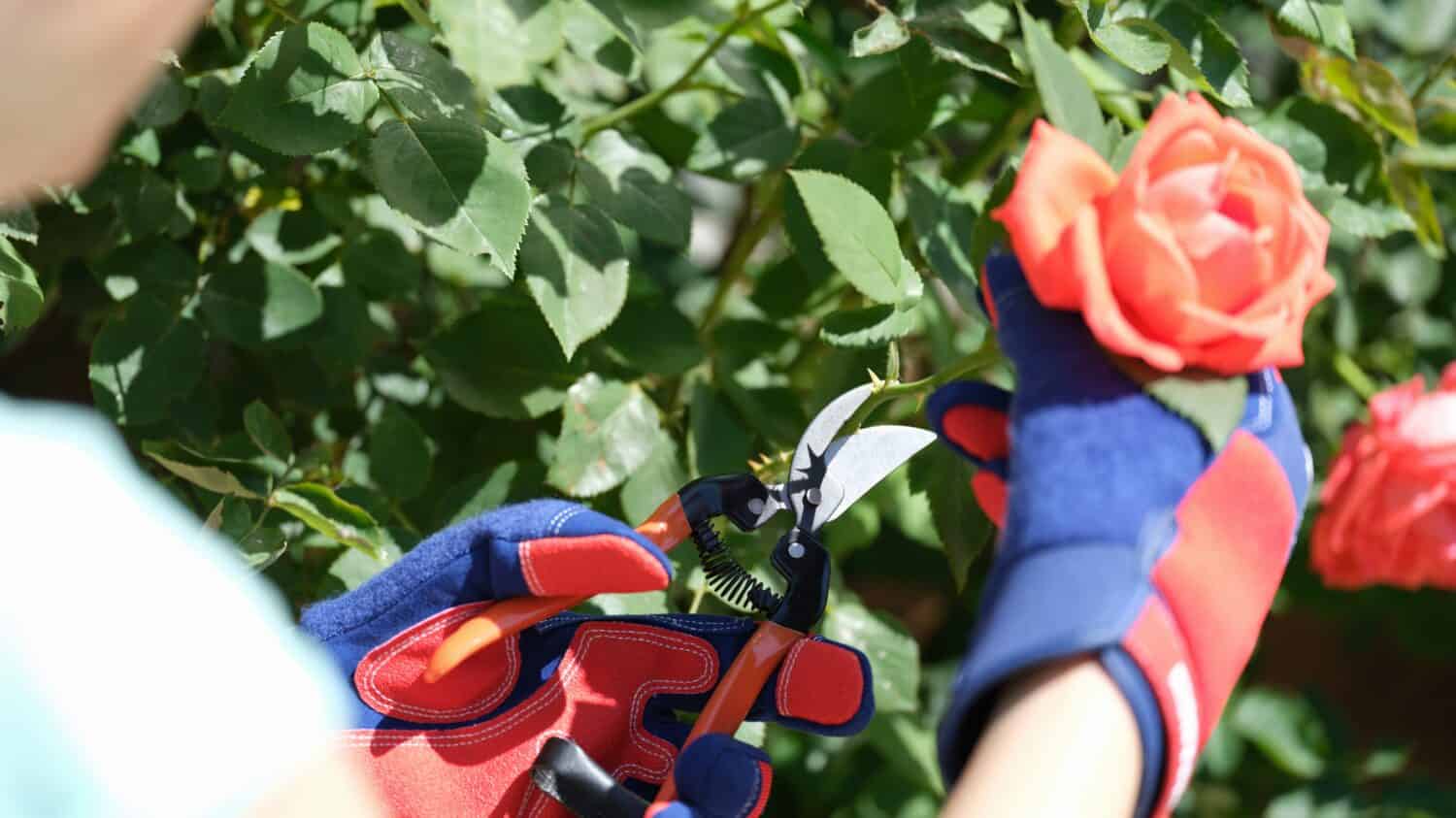
One of the ways in which the infection can pass is by storing gardening gloves, pots, or other equipment in close proximity to infected roses, as they can lead to contamination. When these items are frequently used with healthy plants, they can transfer spores, facilitating the disease’s spread, so ensure that you are keeping them clean.
10. Rainwater Runoff
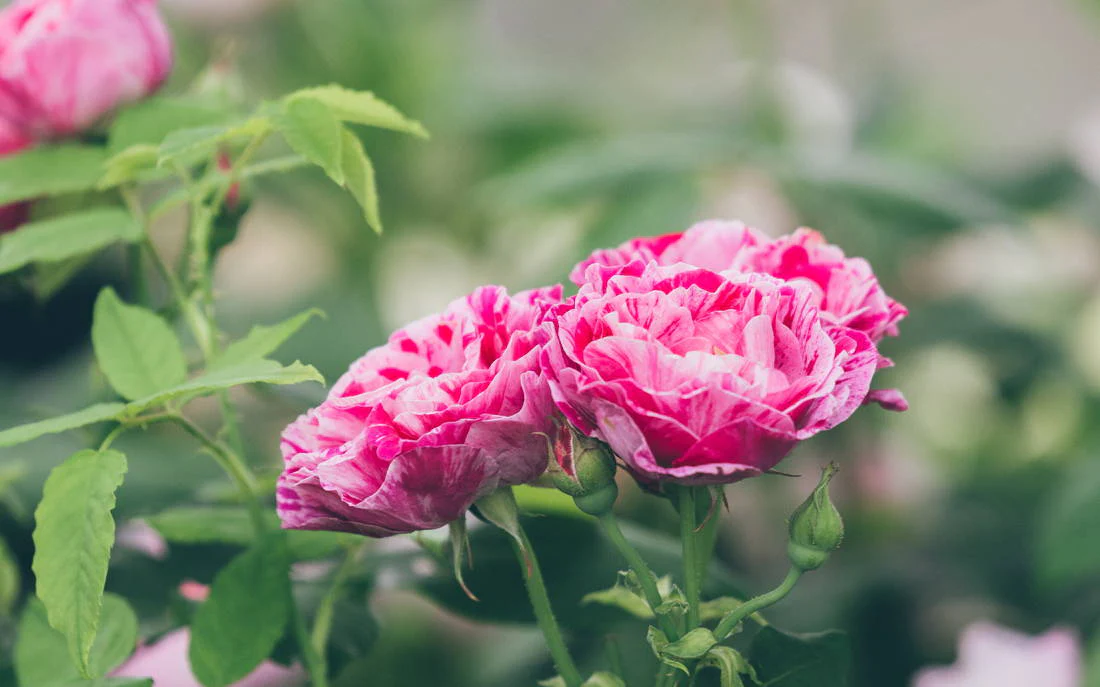
When you are growing roses in sloppy areas, rainwater runoff can carry spores downhill from infected plants to those located further down the slope. This runoff can lead to fungus in new areas of the garden, including nearby rose plants. The only way to prevent this is by ensuring that you cut the infested part of the rose as soon as they start coming.
Conclusion
If you want to protect your roses and nearby plants from the Rose Black Spot, it’s important to be aware of these potential ways of transmission. Now that you know the ways in which the disease can transfer from one plant to another, you should keep in mind that you are ensuring all the safety methods so that the infection does not transfer from one plant to another. Armed with knowledge about its causes, you can enjoy healthy and vibrant roses in your garden year after year.
If you are someone who is looking to grow a thriving garden or just interested in learning about gardening, then follow our blog. We do the research, so you do not have to.
Happy Gardening.





